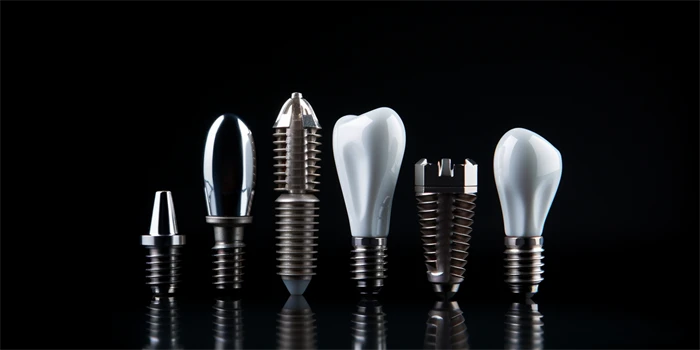Dental bonding is a popular cosmetic dental procedure that involves the application of a tooth-colored resin material to repair cracked, chipped, or discolored teeth. While generally a pain-free and effective treatment, some patients may experience discomfort or pain after dental bonding. In this article, we will explore the potential reasons why dental bonding can cause pain and discomfort, and provide some insights on how to manage these issues.

1. Bite Misalignment
If your dental bonding feels uncomfortable when biting down, it could be an indication of a bite misalignment. When dental bonding is not aligned properly with your natural teeth, it can result in an uneven bite, leading to pain or discomfort. In such cases, it is important to visit your dentist who can make the necessary adjustments to ensure a proper bite alignment.
Additionally, your dentist might recommend a nightguard to prevent grinding or clenching of teeth which can also cause discomfort after dental bonding.
2. Sensitivity to Temperature
One common side effect of dental bonding is increased sensitivity to hot or cold temperatures. This sensitivity is temporary and should subside within a few weeks after the procedure. However, during this time, it is advisable to avoid consuming extremely hot or cold foods and beverages to minimize discomfort.
If the sensitivity persists or becomes severe, it is recommended to contact your dentist for further evaluation.
3. Recurrent Decay
In rare cases, dental bonding material can break down or chip, allowing bacteria to enter and cause recurrent decay. This can result in pain or sensitivity in the affected tooth. If you experience sudden or severe pain after dental bonding, it is important to schedule an appointment with your dentist as soon as possible. They can assess the situation and provide appropriate treatment, which might include replacing the bonding material.
4. Allergic Reactions
Although rare, some individuals may have an allergic reaction to the materials used in dental bonding. If you experience symptoms such as swelling, redness, or itching in or around the treated area, contact your dentist immediately. They can evaluate your symptoms and determine the best course of action, which may involve removing the bonding material and exploring alternative treatment options.
5. Improper Bonding Technique
Poorly executed bonding technique can lead to discomfort or pain after the procedure. If the bonding material is not properly applied, it may cause uneven surfaces or rough edges, leading to irritation of the surrounding tissues. In such cases, it is essential to visit your dentist, who can assess the bonding and make any necessary adjustments or repairs.
6. Overexposure to Bonding Agent
Overexposure to the bonding agent used in the procedure can cause irritation and sensitivity. If your dentist applies an excessive amount of the bonding agent, it can potentially seep out and irritate the surrounding gum tissues. This can result in discomfort or a burning sensation. If you experience such symptoms, it is recommended to contact your dentist for further evaluation.
7. Improper Dental Care
Proper dental care is crucial after dental bonding to ensure its longevity and minimize any potential discomfort. If you fail to follow good oral hygiene practices, such as regular brushing, flossing, and dental check-ups, it can lead to gum disease, decay, and other issues that may cause pain around the bonded tooth. Maintaining good oral hygiene habits is essential for the overall success and comfort of dental bonding.
8. Teeth Grinding or Clenching
Teeth grinding or clenching, also known as bruxism, can cause excessive pressure on the teeth and dental bonding. This constant pressure can result in cracks or fractures in the bonding material, leading to pain or discomfort. If you suspect bruxism, it is advisable to consult your dentist, who can recommend a nightguard or other appropriate treatments to protect your dental bonding and alleviate any associated pain.
9. Psychological Factors
In some cases, the discomfort experienced after dental bonding may have psychological origins. Dental anxiety or fear can heighten sensitivity to any irregularities or changes in the mouth, causing exaggerated or misplaced discomfort. If you suspect psychological factors contributing to your pain, it may be beneficial to discuss your concerns with your dentist or consider seeking support from a mental health professional.
10. Natural Healing Process
It is essential to remember that any dental procedure, including dental bonding, requires some time for the tissues to heal and adapt. Mild discomfort or sensitivity immediately after the procedure is normal and should subside within a few days. However, if the pain persists or worsens over time, it is recommended to consult your dentist for further evaluation.
Frequently Asked Questions
1. How much does dental bonding cost?
The average cost of dental bonding is around $300 to $600 per tooth. However, prices can vary depending on the location, complexity of the case, and the dentist's expertise. It is advisable to consult your dentist for an accurate cost estimate.
2. How long does dental bonding last?
Dental bonding usually lasts between 5 to 10 years with proper care. Good oral hygiene practices, regular dental check-ups, and avoiding habits like biting nails or chewing on pens can help prolong the lifespan of dental bonding.
3. Can dental bonding be repaired?
If the dental bonding material becomes chipped, discolored, or damaged, it can usually be repaired. Your dentist can evaluate the bonding and determine the best course of action. In some cases, a complete replacement may be necessary.
References
1. American Dental Association.
2. Mayo Clinic.
3. WebMD.




